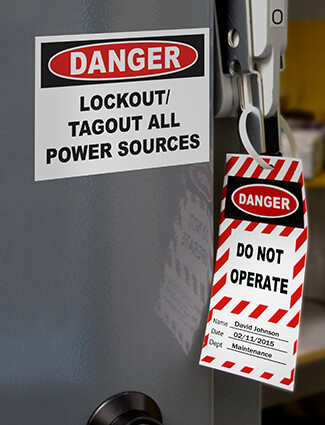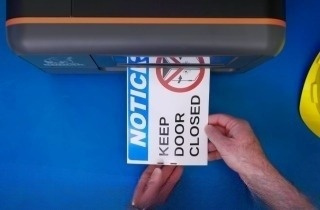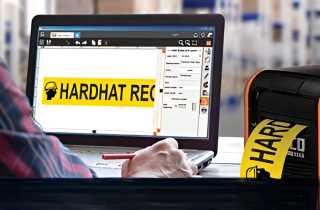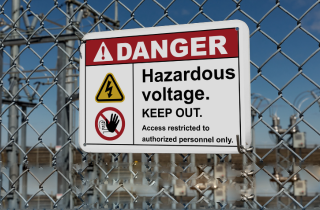OSHA's Severe Violator Program Shows Consistency

Soon after Oscar Rivera began his painting job in Southern California, he fell through a skylight more than 20 feet and hit the ground. Working without fall protection, Rivera died instantly and unnecessarily, according to his family. His sister, Mary, said his death could have been prevented.
"There has to be change. There have been too many families that watch a son, a brother, a father, or an uncle that left to work and never return home. These (severe) violators are not going by OSHA's guidelines," Mary Rivera said. The company Rivera worked for was known for safety violations.
In 2010, OSHA's Severe Violator Enforcement Program (SVEP) began as a way to concentrate on inspecting employers who have demonstrated indifference to safety through willful, repeated, or failure-to-abate violations. OSHA deems a severe violator as one that has multiple, high-emphasis hazard violations that include fall hazards, amputations (due to failure of lockout/tagout and machine guarding), combustible dust, crystalline silica, and excavation/trenching. Egregious recordkeeping also can be considered. When employers do not follow safety standards, regulations, and best practices, employees are at risk for injury or even death.
Severe Violations
 After an employee died in a recent trench collapse, workplace safety regulators cited and fined $202,201 against an Ohio excavation contractor. The company has been placed on OSHA's SVEP list. According to OSHA, the company had been in violation of several ongoing big issues, showing indifference to worker safety. The company did not use protective systems to prevent a trench cave-in and did not implement methods to remove accumulating water. In addition, ladders were not used properly, employees were working unsafely and without personal protection equipment, and there were no provisions for prompt medical attention in the event of injury, the agency reported.
After an employee died in a recent trench collapse, workplace safety regulators cited and fined $202,201 against an Ohio excavation contractor. The company has been placed on OSHA's SVEP list. According to OSHA, the company had been in violation of several ongoing big issues, showing indifference to worker safety. The company did not use protective systems to prevent a trench cave-in and did not implement methods to remove accumulating water. In addition, ladders were not used properly, employees were working unsafely and without personal protection equipment, and there were no provisions for prompt medical attention in the event of injury, the agency reported.
"A trench can collapse in seconds, burying workers under the weight of thousands of pounds of soil," said Ken Montgomery, OSHA Cincinnati area office director. "This tragedy was preventable and could have been avoided if the employer had installed required protective systems to prevent a trench cave-in."
Is the list of severe violators growing? OSHA did not respond to requests for comments on the success of the SVEP. However, OSHA records show a consistent number of SVEP citations issued. The federal agency's records are not yet final for 2017, but so far 58 SVEP citations are listed. In 2016, there were 77; a drop from 88 in 2015. There were 75 severe violators in 2014. Construction and manufacturing firms and small employers dominate the list of violators.
When an employer is found to have poor workplace behavior, OSHA will list the company's name on its website along with a news release detailing the incident. Along with an enhanced settlement, the company will face a mandatory follow-up inspection and be on probation-like status on OSHA's list for three years.
Stay on Track for Compliance
OSHA has a map on its website that shows enforcement cases in each state. Among the most cited offenses and repeat offenses are lockout/tagout, medical/first aid stations, and signage. These safety violations are among the easiest solutions for employers to address. The key to proper safety compliance lies in having trusted information from industry experts and products that are guaranteed to last through years of inspections.
Making efforts to improve safety can benefit a business in a multitude of ways. Employers can stay on track for compliance and take the right actions for the company by establishing a solid safety and health program. These programs go beyond compliance. They help businesses prevent workplace injuries, which reduces worker costs and increases overall business operations. Create an effective safety management system that enables continuous improvement. Employers can evolve and adapt easily to change through simple, cost effective, and robust training and compliance solutions.
Related Resources

Updates to OSHA's Recordkeeping Rule
OSHA requires record keeping of severe injuries. This help employers recognize workplace hazards and correct ...
Read
OSHA Severe Violator Enhancement Program SVEP
Teachers, cops, FBI, even the USDA are authorized to dole out punishment in an attempt to induce desired ...
Read
OSHA Expedites Occupational Safety Cases and Protects Whistleblowers
OSHA has a new pilot program aimed specifically at helping safety whistleblowers, who may fear the impacts of ...
Read.png)





